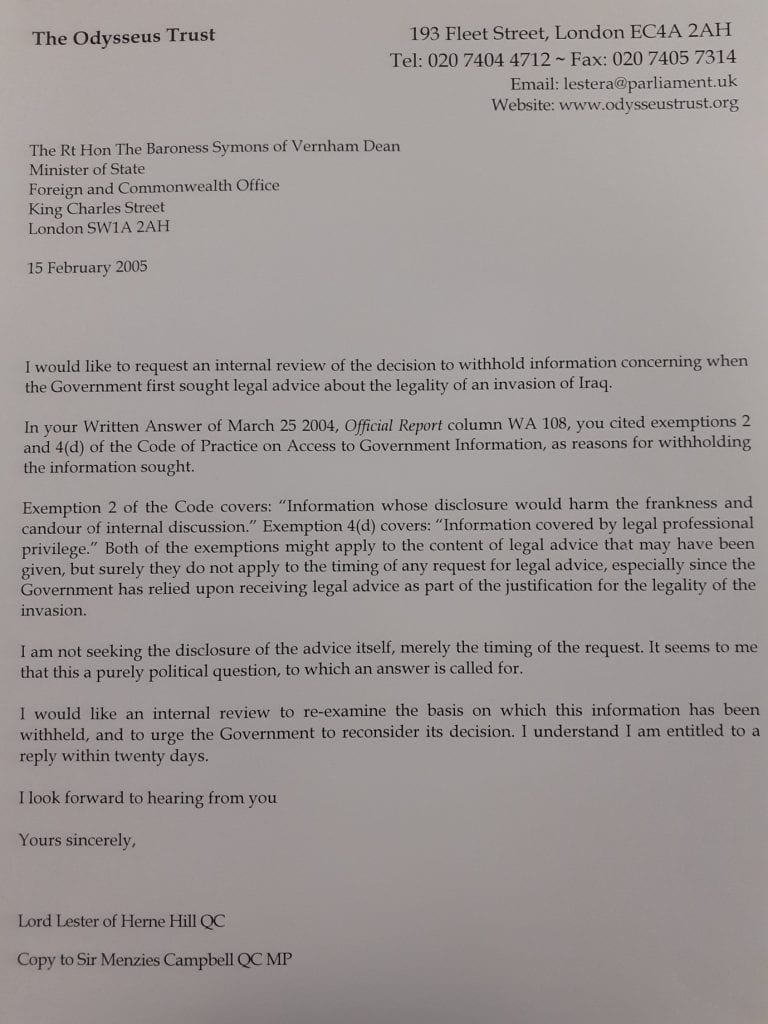Cataloguing the papers of Anthony Lester, Lord Lester of Herne Hill
By utnvweb, on 12 December 2023
By Martin Woodward, Cataloguing Archivist, Lester Papers
The Project to catalogue the Papers of Anthony Lester, Lord Lester of Herne Hill (1936-2020) is now complete. Lester was an eminent barrister (QC), Special Adviser to Labour Home Secretary Roy Jenkins in the 1970s, and for twenty-five years a Liberal Democrat peer. During his time in the Lords, Lester’s Private Member’s Bills and tireless political work on behalf of human rights, equality and free speech helped bring about the Human Rights Act 1998, the Civil Partnership Act 2004, the Equality Act 2010, and the Defamation Act 2013.
Lester held visiting professorships at UCL, and we are very pleased that the Lester Papers are now available for research at UCL Special Collections.

Boxes of files from the Lester archive as received from the donor
There were two main elements to the project: appraisal and cataloguing. A careful process of appraisal has seen the reduction of an original deposit of 59 banker’s boxes of files to thirty smaller archive boxes of papers. The priorities during appraisal were to retain anything written by Lester, such as publications and correspondence, and records of House of Lords Written Answers where Lester asked the question. Accompanying documents, such as official publications, reports, and policy statements, in which Lester had no involvement, were generally not retained.
This process led to three main classes of material for cataloguing.
The first of these was Lester’s Written Answers, principally in the form of an apparently comprehensive chronological run of six files of Lester’s questions to Government Ministers covering the years 1993-2005, and a scattering of similar records elsewhere. One cannot fail to be amazed at the sheer number of questions put by Lester in the House of Lords during this period.

LESTER/207: Lester was co-founder and Chairman (1991-1993) of the race relations and civil rights think tank the Runnymede Trust. Image published with the permission of the Runnymede Trust.
The second category of material was Lester’s publications: book chapters, articles, speeches, lectures, letters to the press, and so on. Here also there was a very carefully arranged chronological run of papers by Lester in nine files covering the years 1964-2011 (the index lists 335 items). The publications demonstrate all Lester’s main concerns in Parliament: race relations, human rights, equality, constitutional matters, Northern Ireland, European law, and free speech. Lester’s written output is immense, as is the depth of his legal knowledge. There are also several other files of Lester’s articles and speeches, which are recorded separately in the catalogue. Lester’s Jewish origins are often reflected in his writings, such as when he refers to his father’s witnessing the activities of Sir Oswald Mosley’s Blackshirts in the East End of London in the 1930s.
The third category was the subject files (such as papers on international Human Rights), reduced by appraisal largely to Lester’s own correspondence. Here again there was an original alphabetical subject file classification between LESTER/1 (Blasphemy) and LESTER/149 (Venice Commission), which has been followed in the online catalogue; thereafter the papers are not arranged in any recognisable order. The records of Lord Lester’s Office are in general extremely well kept. The subject files illustrate Lester’s work on behalf of the Social Democratic Party (SDP) in the early 1980s and the Liberal Democrats in the 1990s, and (principally) his political interests in the House of Lords between 1993 and 2015. The files contain letters, amongst many others, from Tony and Cherie Blair, Margaret Thatcher, Jack Straw, Shirley Williams, and Lord Scarman. Some of the correspondence is more personal in nature, such as a letter from Lester to Mohamed Al Fayed in 1994, thanking him for allowing Lester and his wife, Katya, to stay at Al Fayed’s Scottish estate.
The correspondence is notable for the evident warmth and respect in which Lester was held by his many contacts in the legal profession, politics and the media.

LESTER/195: letter from Lester to the Minister of State at the Foreign and Commonwealth Office, 2005, seeking a review of the Government’s decision to withhold information about the invasion of Iraq.

LESTER/165: one of Lester’s doodles, dating back to his days in the SDP.
Nor is humour lacking: a letter from the Parliamentary Group for World Government addressed to ‘Lord Anthony Leicester’ prompted the response: ‘Incidentally you might wish to note the spelling of my name because the Earl of Leicester would be upset’. Again, when Lester was asked his name and professional background by an interviewer in 2007 he replied: ‘Well, that’s not so easy because I changed my name when I became a member of the old people’s home but I was born Anthony Lester and I am now Lord Lester of Herne Hill QC’. And then there are the doodles. There is a scattering of these throughout the papers.
Government legislation on equality and human rights has produced enormous social change in this country since the Roy Jenkins era. It is my belief that the Lester archive will be a very important resource in future in understanding how that change occurred. The catalogue is available on our archives catalogue
 Close
Close


